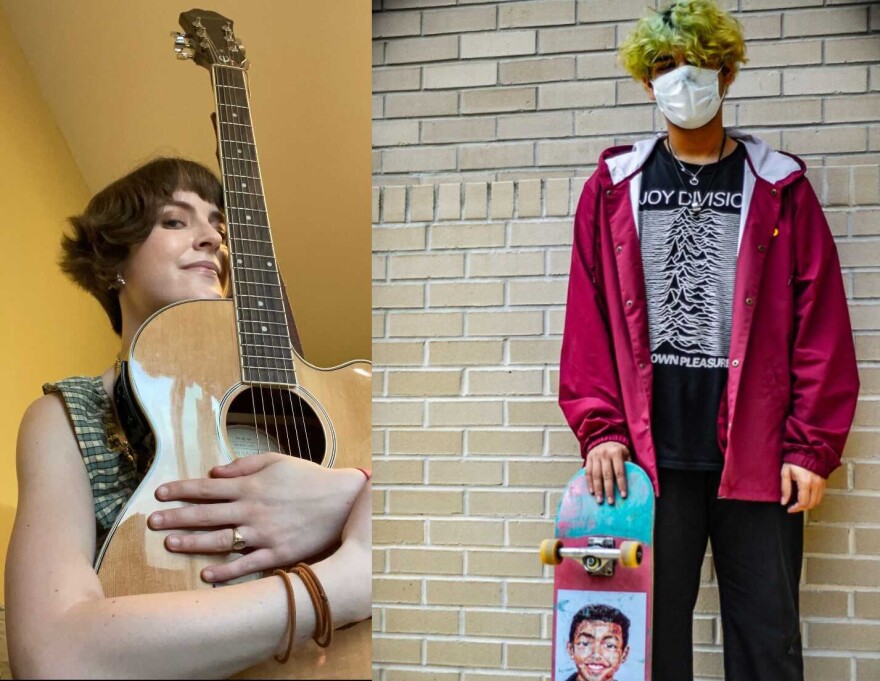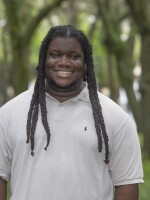With the coronavirus stopping the world as we know it, incoming college freshmen had to adapt to a totally different environment while also trying to stay safe during a pandemic. At the same time, they also had to deal with many of their lifelong goals being taken from them, one after another.
High school students who graduated in 2020 lost senior year milestones, like graduation, prom and senior prank day.
In addition, they had to then start their college experience virtually.
Morgan Chipman, a communications major at the University of South Florida in Tampa, recalls where she was when she learned of how serious the situation had become.
“So, my family had planned a trip to Hawaii for spring break, and we were flying back from it. I remember I was in the Atlanta airport; we were waiting to get our luggage rack,” she said.
“When my mom told me that I wasn't going back to school, I wasn't graduating, wasn't getting prom, I wasn't going to say goodbye to any of my friends, I just sat on the ground. I felt my mask on my face, and it felt like I couldn't breathe even though I could,” said Chipman. “And I started crying, and it was like the world was ending.”
Moving to a new place and immediately being confined to a residence hall room with little to no in-person contact wasn’t what most freshmen had in mind when they envisioned their first semester in college.
“It definitely made it a lot more lonely, especially for me because I don't have a roommate. Pair that with the fact that we're in a pandemic where we can't go out and see a bunch of people for a good three months,” said Chipman. “I literally saw almost no one except for my suitemate, I did join a sorority, but even that was virtual, so if I saw people, it was only on my computer.
“I think a lot of people think that, like when you go to college for your first year, you're going to be out partying a bunch. I stayed in my room in my pajamas all day.”
A survey conducted by the American College Health Association in 2017 found that out of nearly 48,000 students, 64% of them reported feeling “very lonely” during their first year of college. With a global pandemic added to the mix, first-year students had to find different ways to cope with this feeling.
“I know people have different ways to cope, and I have healthy ways and not-so-healthy ways. I like to play music. I play guitar a lot, but also play the ukulele and know, like, a tiny bit of piano. I spent a lot of time just playing music to get all my emotions and everything just out of me,” Chipman said.
“A less-healthy way is that I would spend a lot of time on my phone. I would scroll for hours just staring at nothing, even refreshing my feed when there's nothing happening.”
Chipman wasn’t the only freshman dealing with a new environment. Farid Asmar, a marketing major at USF, made the most significant decision of his life by leaving his native Puerto Rico to move to Tampa by himself. He figured the virus would blow over while he was moving.
“When I first heard about COVID, it was just a little bit after the beginning of spring semester last year. I heard little murmurings or rumors, like, there's a new virus happening and supposed to be hitting the U.S. pretty soon,” he said.

“I was very dismissive. I feel like a lot of people were dismissive of it as well. People were just taking it as nothing. We've heard of little pandemics before, we had a little flu epidemic here and there, a little Ebola outbreak, so I thought it was going to be more of the same.”
After seeing how serious the virus had become, Asmar was devastated, knowing he wouldn’t be getting the typical college experience.
“The reason why I moved to Tampa in the first place was because I was feeling very complacent. I was feeling very bored with where I grew up,” he said. “I had moved to Tampa specifically for the college experience; I was seeking out new experiences, seeking out new people to interact with, I was just seeking out a whole new world.”
While getting adjusted to living independently in a new area, Asmar knew it was essential to build relationships if he didn’t want to feel homesick and regret his choice.
“I really like skateboarding, and apparently, there's no shortage of skateboarders here on campus, so I just met some really good friends right off the bat,” he said. “And that gave me a little bit of hope, like a little glimmer that what I did was right -- the whole moving over here was the right thing for me, like I already found the people I liked relating to, so I was feeling good.”
Asmar still faced other challenges in his everyday life -- while adjusting to living alone, he also had to switch over to make English his first language.
“Back home in Puerto Rico, I would be used to speaking Spanish anywhere I went -- grocery stores, little fast-food (places), everywhere. Even though I do speak English fluently, having it be the main language and have it getting used to the little interactions, little greetings, like ordering, it felt very strange,” he said.
“The bigger challenge, the bigger-picture challenge, was balancing everything, because I'm living alone and I'm studying, and I'm in a whole new country.”
Asmar and Chipman will both be returning to USF’s campus for their sophomore year.
With COVID vaccines rolling out, more Florida schools are getting ready to open classes in person this summer and fall.
Chipman has words of encouragement for incoming freshmen.
“Find something that makes you feel normal, even for a brief moment, and hold on to that because it's not a normal situation. It's not the normal time. None of us feel normal at all. But if you can find little pockets of it, just hold on to it.”
And for Asmar, the experience has given him a new outlook on life.
“I feel like I'm a lot more grateful. I'm a lot more grateful for the experiences that I got to have. I’m more grateful for just the common things that I guess we took for granted before.”
Copyright 2021 WUSF Public Media - WUSF 89.7








